-

Feb
21
About Calihan Waller - 2024 ASAS DC Intern

2024 DC Policy Intern
Read more
-

Feb
21
A Giving Partner's Message - Shawn Archibeque, Ph.D.

A Giving Partner's Message
Read more
-

Feb
21
Honoring Dr. Gretchen Hill

Honoring Dr. Gretchen Hill
Read more
-

Feb
15
Interpretive Summary: Effects of bacterial direct-fed microbial combinations on beef cattle growth performance, feeding behavior, nutrient digestibility, ruminal morphology, and carcass characteristics
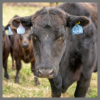
Direct-fed microbials (DFM) are naturally occurring microorganisms that alter cattle ruminal fermentation and intestinal function and have been shown to improve growth performance and nutrient digestibility of cattle. The use of DFM in animal feed has continuously increased in feedlots as an alternative to traditional antibiotic additives, which have gained negative public perception and additional regulatory scrutiny.
Read more
-

Feb
15
Interpretive Summary: The effects of torula yeast as a protein source on apparent total tract digestibility, inflammatory markers, and fecal microbiota dysbiosis index in Labrador Retrievers with chronically poor stool quality

Pet and human populations continue to grow and compete for nutritious, sustainable protein sources. The incorporation of alternative proteins like torula yeast can provide a solution to this problem. Torula yeast also may have additional health benefits like reducing gut inflammation.
Read more
-

Feb
15
Interpretive Summary: Supplementing vitamins and minerals to beef heifers during gestation: impacts on mineral status in the dam and offspring, and growth and physiological responses of female offspring from birth to puberty
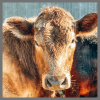
Great variation exists in management decisions to offer a vitamin and mineral supplement to cow–calf herds in the Northern Great Plains. Decisions to supplement (or not) vitamins/minerals during critical periods of fetal development may have lasting postnatal impacts on the offspring; however, there is a lack of reports focusing on the long-term offspring outcomes.
Read more
-

Feb
15
Interpretive Summary: Impact of maternal live yeast supplementation to sows on intestinal inflammatory cytokine expression and tight junction proteins in suckling and weanling piglets
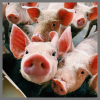
Increasing evidence supports the benefits of improving sow nutrition during gestation and lactation to promote gastrointestinal development and overall health of piglets. The objective of this research was to investigate the effects of maternal live yeast (LY) supplementation to sows during late gestation and lactation periods on the intestinal health of suckling and weaned piglets.
Read more
-

Feb
15
Interpretive Summary: Effect of Saccharomyces cerevisiae Postbiotics and Essential Oil on Growth Performance and Intestinal Health of Weanling Pigs During K88 ETEC Infection

Weanling pigs are vulnerable to a variety of stressors and pathogen infections. Enterotoxigenic Escherichia coli (ETEC) is one of the leading causes of diarrhea and growth retardation in weanling pigs.
Read more
-

Feb
08
Interpretive Summary: Effects of dietary supplementation with 3-nitrooxypropanol on enteric methane production, rumen fermentation, and performance in young growing beef cattle offered a 50:50 forage:concentrate diet
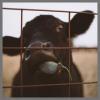
Enteric methane (CH4) is a by-product from the fermentation of feed in the digestive tract of cattle. The production of CH4 is responsible for the loss of 2% to 12% of the animal’s gross energy intake.
Read more
-

Feb
08
Interpretive Summary: Effects of bacterial direct-fed microbial mixtures offered to beef cattle consuming finishing diets on intake, nutrient digestibility, feeding behavior, and ruminal kinetics/fermentation profile
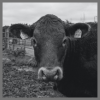
During the finishing phase, a high-energy diet offers benefits related to beef cattle growth and development. However, it is essential to acknowledge that finisher diets are energy-dense and can pose digestive challenges, such as subacute ruminal acidosis.
Read more
-

Feb
08
Interpretive Summary: Effect of supplementing a Bacillus subtilis-based probiotic on performance, intestinal integrity, and serum antioxidant capacity and metabolites concentrations of heat-stressed growing pigs
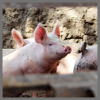
High ambient temperature provokes heat stress in animals, and pigs are highly affected showing low performance, and intestinal integrity and microbiota compromised. Probiotics could help pigs to maintain a healthy intestinal environment.
Read more
-

Feb
08
Interpretive Summary: Daily dosing of cannabidiol (CBD) demonstrates a positive effect on measures of stress in dogs during repeated exposure to car travel

Pet dogs often experience stress during routine car travel which can negatively affect both dogs and humans. A range of management and treatment options exist to address this, such as behavior modification, drug therapy, and supplements, yielding mixed results.
Read more
-

Feb
08
Interpretive Summary: Is there a right time for dairy Alpine goat kid weaning: How does the weaning age of dairy Alpine goat kids affect their growth and behavior?
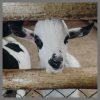
In dairy goat kids, there is limited literature available on weaning management practices, despite this period being one of the most stressful events for kids and being associated with measures of poor welfare. This study aimed to compare weaning of dairy goat kids at 6-, 8-, and 10-wk of age to maximize outcome measures of welfare related to growth, feed intake, and behavior.
Read more
-

Feb
08
Interpretive Summary: Rehydration post-transport: duration of oral fluid therapy on behavior, biochemical measures of hydration, and health of neonatal dairy calves
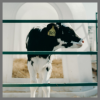
Most male calves are sold and transported from the dairy farm soon after birth. Typically, calves are transported without access to milk and/or water, and they often arrive at calf-raising facilities with varying degrees of dehydration.
Read more
-

Feb
01
Interpretive Summary: FDA releases antimicrobial report

The United States Food and Drug Administration’s (FDA’s) Center for Veterinary Medicine (CVM) published the 2022 Summary Report on Antimicrobials Sold or Distributed for Use in Food-Producing Animals. This year, the FDA published the results in an interactive dashboard that allows users to interact with the data and create data visualizations using criteria such as antimicrobial drug class, species, and year.
Read more
-

Feb
01
Interpretive Summary: Some states looking to ban cell-cultured meat
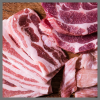
A House bill introduced in Arizona would prohibit cell-cultured animal products. House Bill 2121 would restrict the production and sale of cell-cultured animal products, citing public health concerns and harm to the ranching industry and state economy. If law, those who violate the legislation would face a penalty of up to $25,000.
Read more
-

Feb
01
Interpretive Summary: USDA launches the Summer Electronic Benefit Transfer

The United States Department of Agriculture (USDA) announced that 35 states, along with five United States territories, and four Tribes plan to be the first to launch the new, permanent summer grocery benefits program for children in summer 2024. The Summer Electronic Benefit Transfer (EBT) will serve over 20 million children and provide nearly $2.5 billion in grocery benefits, accounting for 70% of the children in the United States eligible to participate in the program.
Read more
-

Feb
01
Interpretive Summary: Judge upholds FSIS new swine inspection system
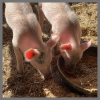
In a recent legal battle, a federal judge has ruled in favor of the United States Department of Agriculture (USDA) Food Safety Inspection Service (FSIS), upholding the adoption of the New Swine Inspection System (NSIS). Several animal rights and environmental organizations challenged the final rule, which addresses the modernization of inspection at market hog slaughter establishments.
Read more
-

Feb
01
Interpretive Summary: House passed Whole Milk for Healthy Kids Act

The Whole Milk for Healthy Kids Act was recently passed by the United States House. The bill would allow whole and low-fat percentage milk to be included in the National School Lunch Program. The legislation passed with a 330-99 vote and will now move on to the Senate for consideration.
Read more
-

Jan
25
Interpretive Summary: Rumen fermentation of meal-fed sheep in response to diets formulated to vary in fiber and protein degradability

We estimated apparent appearance, apparent disappearance, appearance, and disappearance rates of rumen volatile fatty acid (VFA) of sheep in response to the different degradability of nutrients using time-series fermentation indicators with regular meal feeding.
Read more
 FebAbout Calihan Waller - 2024 ASAS DC Intern
FebAbout Calihan Waller - 2024 ASAS DC Intern 2024 DC Policy Intern
2024 DC Policy Intern FebA Giving Partner's Message - Shawn Archibeque, Ph.D.
FebA Giving Partner's Message - Shawn Archibeque, Ph.D. A Giving Partner's Message
A Giving Partner's Message FebHonoring Dr. Gretchen Hill
FebHonoring Dr. Gretchen Hill Honoring Dr. Gretchen Hill
Honoring Dr. Gretchen Hill FebInterpretive Summary: Effects of bacterial direct-fed microbial combinations on beef cattle growth performance, feeding behavior, nutrient digestibility, ruminal morphology, and carcass characteristics
FebInterpretive Summary: Effects of bacterial direct-fed microbial combinations on beef cattle growth performance, feeding behavior, nutrient digestibility, ruminal morphology, and carcass characteristics Direct-fed microbials (DFM) are naturally occurring microorganisms that alter cattle ruminal fermentation and intestinal function and have been shown to improve growth performance and nutrient digestibility of cattle. The use of DFM in animal feed has continuously increased in feedlots as an alternative to traditional antibiotic additives, which have gained negative public perception and additional regulatory scrutiny.
Direct-fed microbials (DFM) are naturally occurring microorganisms that alter cattle ruminal fermentation and intestinal function and have been shown to improve growth performance and nutrient digestibility of cattle. The use of DFM in animal feed has continuously increased in feedlots as an alternative to traditional antibiotic additives, which have gained negative public perception and additional regulatory scrutiny. FebInterpretive Summary: The effects of torula yeast as a protein source on apparent total tract digestibility, inflammatory markers, and fecal microbiota dysbiosis index in Labrador Retrievers with chronically poor stool quality
FebInterpretive Summary: The effects of torula yeast as a protein source on apparent total tract digestibility, inflammatory markers, and fecal microbiota dysbiosis index in Labrador Retrievers with chronically poor stool quality Pet and human populations continue to grow and compete for nutritious, sustainable protein sources. The incorporation of alternative proteins like torula yeast can provide a solution to this problem. Torula yeast also may have additional health benefits like reducing gut inflammation.
Pet and human populations continue to grow and compete for nutritious, sustainable protein sources. The incorporation of alternative proteins like torula yeast can provide a solution to this problem. Torula yeast also may have additional health benefits like reducing gut inflammation. FebInterpretive Summary: Supplementing vitamins and minerals to beef heifers during gestation: impacts on mineral status in the dam and offspring, and growth and physiological responses of female offspring from birth to puberty
FebInterpretive Summary: Supplementing vitamins and minerals to beef heifers during gestation: impacts on mineral status in the dam and offspring, and growth and physiological responses of female offspring from birth to puberty Great variation exists in management decisions to offer a vitamin and mineral supplement to cow–calf herds in the Northern Great Plains. Decisions to supplement (or not) vitamins/minerals during critical periods of fetal development may have lasting postnatal impacts on the offspring; however, there is a lack of reports focusing on the long-term offspring outcomes.
Great variation exists in management decisions to offer a vitamin and mineral supplement to cow–calf herds in the Northern Great Plains. Decisions to supplement (or not) vitamins/minerals during critical periods of fetal development may have lasting postnatal impacts on the offspring; however, there is a lack of reports focusing on the long-term offspring outcomes. FebInterpretive Summary: Impact of maternal live yeast supplementation to sows on intestinal inflammatory cytokine expression and tight junction proteins in suckling and weanling piglets
FebInterpretive Summary: Impact of maternal live yeast supplementation to sows on intestinal inflammatory cytokine expression and tight junction proteins in suckling and weanling piglets Increasing evidence supports the benefits of improving sow nutrition during gestation and lactation to promote gastrointestinal development and overall health of piglets. The objective of this research was to investigate the effects of maternal live yeast (LY) supplementation to sows during late gestation and lactation periods on the intestinal health of suckling and weaned piglets.
Increasing evidence supports the benefits of improving sow nutrition during gestation and lactation to promote gastrointestinal development and overall health of piglets. The objective of this research was to investigate the effects of maternal live yeast (LY) supplementation to sows during late gestation and lactation periods on the intestinal health of suckling and weaned piglets. FebInterpretive Summary: Effect of Saccharomyces cerevisiae Postbiotics and Essential Oil on Growth Performance and Intestinal Health of Weanling Pigs During K88 ETEC Infection
FebInterpretive Summary: Effect of Saccharomyces cerevisiae Postbiotics and Essential Oil on Growth Performance and Intestinal Health of Weanling Pigs During K88 ETEC Infection Weanling pigs are vulnerable to a variety of stressors and pathogen infections. Enterotoxigenic Escherichia coli (ETEC) is one of the leading causes of diarrhea and growth retardation in weanling pigs.
Weanling pigs are vulnerable to a variety of stressors and pathogen infections. Enterotoxigenic Escherichia coli (ETEC) is one of the leading causes of diarrhea and growth retardation in weanling pigs. FebInterpretive Summary: Effects of dietary supplementation with 3-nitrooxypropanol on enteric methane production, rumen fermentation, and performance in young growing beef cattle offered a 50:50 forage:concentrate diet
FebInterpretive Summary: Effects of dietary supplementation with 3-nitrooxypropanol on enteric methane production, rumen fermentation, and performance in young growing beef cattle offered a 50:50 forage:concentrate diet Enteric methane (CH4) is a by-product from the fermentation of feed in the digestive tract of cattle. The production of CH4 is responsible for the loss of 2% to 12% of the animal’s gross energy intake.
Enteric methane (CH4) is a by-product from the fermentation of feed in the digestive tract of cattle. The production of CH4 is responsible for the loss of 2% to 12% of the animal’s gross energy intake. FebInterpretive Summary: Effects of bacterial direct-fed microbial mixtures offered to beef cattle consuming finishing diets on intake, nutrient digestibility, feeding behavior, and ruminal kinetics/fermentation profile
FebInterpretive Summary: Effects of bacterial direct-fed microbial mixtures offered to beef cattle consuming finishing diets on intake, nutrient digestibility, feeding behavior, and ruminal kinetics/fermentation profile During the finishing phase, a high-energy diet offers benefits related to beef cattle growth and development. However, it is essential to acknowledge that finisher diets are energy-dense and can pose digestive challenges, such as subacute ruminal acidosis.
During the finishing phase, a high-energy diet offers benefits related to beef cattle growth and development. However, it is essential to acknowledge that finisher diets are energy-dense and can pose digestive challenges, such as subacute ruminal acidosis. FebInterpretive Summary: Effect of supplementing a Bacillus subtilis-based probiotic on performance, intestinal integrity, and serum antioxidant capacity and metabolites concentrations of heat-stressed growing pigs
FebInterpretive Summary: Effect of supplementing a Bacillus subtilis-based probiotic on performance, intestinal integrity, and serum antioxidant capacity and metabolites concentrations of heat-stressed growing pigs High ambient temperature provokes heat stress in animals, and pigs are highly affected showing low performance, and intestinal integrity and microbiota compromised. Probiotics could help pigs to maintain a healthy intestinal environment.
High ambient temperature provokes heat stress in animals, and pigs are highly affected showing low performance, and intestinal integrity and microbiota compromised. Probiotics could help pigs to maintain a healthy intestinal environment. FebInterpretive Summary: Daily dosing of cannabidiol (CBD) demonstrates a positive effect on measures of stress in dogs during repeated exposure to car travel
FebInterpretive Summary: Daily dosing of cannabidiol (CBD) demonstrates a positive effect on measures of stress in dogs during repeated exposure to car travel Pet dogs often experience stress during routine car travel which can negatively affect both dogs and humans. A range of management and treatment options exist to address this, such as behavior modification, drug therapy, and supplements, yielding mixed results.
Pet dogs often experience stress during routine car travel which can negatively affect both dogs and humans. A range of management and treatment options exist to address this, such as behavior modification, drug therapy, and supplements, yielding mixed results. FebInterpretive Summary: Is there a right time for dairy Alpine goat kid weaning: How does the weaning age of dairy Alpine goat kids affect their growth and behavior?
FebInterpretive Summary: Is there a right time for dairy Alpine goat kid weaning: How does the weaning age of dairy Alpine goat kids affect their growth and behavior? In dairy goat kids, there is limited literature available on weaning management practices, despite this period being one of the most stressful events for kids and being associated with measures of poor welfare. This study aimed to compare weaning of dairy goat kids at 6-, 8-, and 10-wk of age to maximize outcome measures of welfare related to growth, feed intake, and behavior.
In dairy goat kids, there is limited literature available on weaning management practices, despite this period being one of the most stressful events for kids and being associated with measures of poor welfare. This study aimed to compare weaning of dairy goat kids at 6-, 8-, and 10-wk of age to maximize outcome measures of welfare related to growth, feed intake, and behavior. FebInterpretive Summary: Rehydration post-transport: duration of oral fluid therapy on behavior, biochemical measures of hydration, and health of neonatal dairy calves
FebInterpretive Summary: Rehydration post-transport: duration of oral fluid therapy on behavior, biochemical measures of hydration, and health of neonatal dairy calves Most male calves are sold and transported from the dairy farm soon after birth. Typically, calves are transported without access to milk and/or water, and they often arrive at calf-raising facilities with varying degrees of dehydration.
Most male calves are sold and transported from the dairy farm soon after birth. Typically, calves are transported without access to milk and/or water, and they often arrive at calf-raising facilities with varying degrees of dehydration. FebInterpretive Summary: FDA releases antimicrobial report
FebInterpretive Summary: FDA releases antimicrobial report The United States Food and Drug Administration’s (FDA’s) Center for Veterinary Medicine (CVM) published the 2022 Summary Report on Antimicrobials Sold or Distributed for Use in Food-Producing Animals. This year, the FDA published the results in an interactive dashboard that allows users to interact with the data and create data visualizations using criteria such as antimicrobial drug class, species, and year.
The United States Food and Drug Administration’s (FDA’s) Center for Veterinary Medicine (CVM) published the 2022 Summary Report on Antimicrobials Sold or Distributed for Use in Food-Producing Animals. This year, the FDA published the results in an interactive dashboard that allows users to interact with the data and create data visualizations using criteria such as antimicrobial drug class, species, and year. FebInterpretive Summary: Some states looking to ban cell-cultured meat
FebInterpretive Summary: Some states looking to ban cell-cultured meat A House bill introduced in Arizona would prohibit cell-cultured animal products. House Bill 2121 would restrict the production and sale of cell-cultured animal products, citing public health concerns and harm to the ranching industry and state economy. If law, those who violate the legislation would face a penalty of up to $25,000.
A House bill introduced in Arizona would prohibit cell-cultured animal products. House Bill 2121 would restrict the production and sale of cell-cultured animal products, citing public health concerns and harm to the ranching industry and state economy. If law, those who violate the legislation would face a penalty of up to $25,000. FebInterpretive Summary: USDA launches the Summer Electronic Benefit Transfer
FebInterpretive Summary: USDA launches the Summer Electronic Benefit Transfer The United States Department of Agriculture (USDA) announced that 35 states, along with five United States territories, and four Tribes plan to be the first to launch the new, permanent summer grocery benefits program for children in summer 2024. The Summer Electronic Benefit Transfer (EBT) will serve over 20 million children and provide nearly $2.5 billion in grocery benefits, accounting for 70% of the children in the United States eligible to participate in the program.
The United States Department of Agriculture (USDA) announced that 35 states, along with five United States territories, and four Tribes plan to be the first to launch the new, permanent summer grocery benefits program for children in summer 2024. The Summer Electronic Benefit Transfer (EBT) will serve over 20 million children and provide nearly $2.5 billion in grocery benefits, accounting for 70% of the children in the United States eligible to participate in the program. FebInterpretive Summary: Judge upholds FSIS new swine inspection system
FebInterpretive Summary: Judge upholds FSIS new swine inspection system In a recent legal battle, a federal judge has ruled in favor of the United States Department of Agriculture (USDA) Food Safety Inspection Service (FSIS), upholding the adoption of the New Swine Inspection System (NSIS). Several animal rights and environmental organizations challenged the final rule, which addresses the modernization of inspection at market hog slaughter establishments.
In a recent legal battle, a federal judge has ruled in favor of the United States Department of Agriculture (USDA) Food Safety Inspection Service (FSIS), upholding the adoption of the New Swine Inspection System (NSIS). Several animal rights and environmental organizations challenged the final rule, which addresses the modernization of inspection at market hog slaughter establishments. FebInterpretive Summary: House passed Whole Milk for Healthy Kids Act
FebInterpretive Summary: House passed Whole Milk for Healthy Kids Act The Whole Milk for Healthy Kids Act was recently passed by the United States House. The bill would allow whole and low-fat percentage milk to be included in the National School Lunch Program. The legislation passed with a 330-99 vote and will now move on to the Senate for consideration.
The Whole Milk for Healthy Kids Act was recently passed by the United States House. The bill would allow whole and low-fat percentage milk to be included in the National School Lunch Program. The legislation passed with a 330-99 vote and will now move on to the Senate for consideration. JanInterpretive Summary: Rumen fermentation of meal-fed sheep in response to diets formulated to vary in fiber and protein degradability
JanInterpretive Summary: Rumen fermentation of meal-fed sheep in response to diets formulated to vary in fiber and protein degradability We estimated apparent appearance, apparent disappearance, appearance, and disappearance rates of rumen volatile fatty acid (VFA) of sheep in response to the different degradability of nutrients using time-series fermentation indicators with regular meal feeding.
We estimated apparent appearance, apparent disappearance, appearance, and disappearance rates of rumen volatile fatty acid (VFA) of sheep in response to the different degradability of nutrients using time-series fermentation indicators with regular meal feeding.



